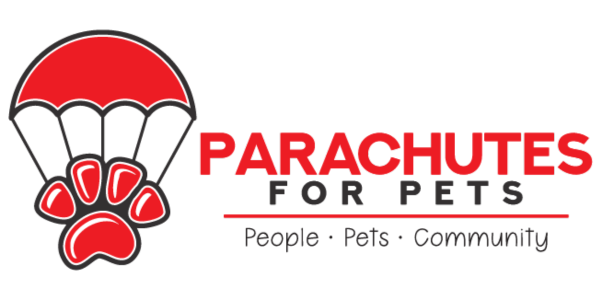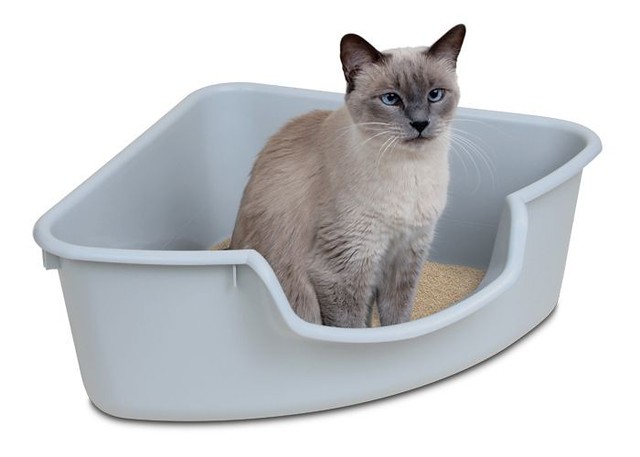Dr. Alison Carter, MVB, DVM
Not being able to urinate can be a life-threatening emergency. This can occur in both dogs and cats but is most commonly seen in larger male cats. Generally clinical signs will start with straining to urinate, wanting to urinate more frequently, licking genitalia, discoloured urine, and urinating inappropriately around the house. Signs can progress to a complete inability to produce urine (being “blocked”), which is an emergency! Total obstruction can lead to signs such as depression, lethargy, vomiting, and lack of appetite. This is why it is important to monitor your pet’s urination daily.
What causes it?
There are multiple reasons pets can develop a urinary obstruction. Cats can develop a condition called Feline Lower Urinary Tract Disease (FLUTD). FLUTD is a condition describing a group of symptoms such as straining to urinate, urinating small amounts more frequently, urinating blood, being uncomfortable/vocalizing when urinating, and so on. Despite intense study, no single cause for FLUTD has been discovered. FLUTD signs can be caused by a number of underlying things including something in the urine (such as crystals, or bacteria causing an infection), something in the bladder (such as bladder stones or a mass), or inflammation caused by the body over-reacting to a stressful situation. These can cause a blockage in the urethra (the pipe that connects the bladder to the outside world) which stops your pet being able to urinate. Testing your cat’s urine for crystals and bacteria, blood work to check on their kidneys, and doing x-rays to look for stones can help determine the underlying cause of your cat’s symptoms.
Why is it dangerous?
The body gets rid of toxins and things it does not need through the urine. If your pet is not able to urinate and get rid of these things, they can be re-absorbed by the body into the blood stream and cause serious trouble. One that we worry about the most is the electrolyte potassium. If there is too much potassium in the blood, it can be very toxic to the heart. The pressure that builds in the urinary system up can also back up and have a negative effect on the kidneys, which can be quite sensitive to damage.
When to go to the vet?
If you notice your pet showing any of the signs mentioned above, it is important to have them assessed by a veterinarian as soon as possible. Your veterinarian can assess if your pet is “blocked”, as well as run some tests to see if there is an underlying cause to the signs (such as crystals in the urine). If your pet has not been able to produce any urine in 12 hours or is showing signs that they are not feeling well, they should be evaluated by an emergency veterinarian straight away if your family vet is not available. If you have any concerns, you should call your local veterinarian or an ER hospital to ask advice.
Treatment:
There are various treatment options depending on the underlying cause of the clinical signs and how severe they are. For example, if there are crystals in the urine your veterinarian may recommend a special prescription urinary diet to dissolve these. If there are large stones in the bladder, surgery may be recommended. If your cat is “blocked”, hospitalization to place a urinary catheter and relieve the obstruction will likely be recommended.
At home care:
If your cat experiences FLUTD symptoms, you can talk to your vet about implementing management strategies at home. These include encouraging water intake (by adding water to their food, using a water fountain, or using a canned diet) and always allowing access to fresh water, minimizing stress in their environment and changes to their routine, and using pheromone diffusers.
A Journey of Love, Advocacy, and the Unbreakable Bonds that Shape Us: A Kodette LaBarbera Story
Kodette LaBarbera—wife, mother, TV personality, and dedicated advocate for Autism—as she opens up about her life in the spotlight and her heartwarming journey through parenthood and the hockey world. Married to Jason LaBarbera, Calgary Flames goalie coach, Kodette...
Wagons, Resilience, and Horses with Tuff Dreger
This week joining the podcast, we have Tuff Dreger, a farrier and a rising star in the world of chuckwagon racing. At just 21 years old, Tuff is already making waves in a sport steeped in tradition and adrenaline. Coming from a long line of chuckwagon drivers, Tuff...
Reimagining Vet Care With Dr. Cody Creelman
Join Dr. Cody Creelman, a veterinarian who grew up on a ranch in Northern Alberta, as he shares his inspiring journey from a ranch volunteer to founder of Fen Vet, a revolutionary three-practice clinic. After facing uncertainty in his career, Cody redefined the...
The Skeleton of Strength: Ivy’s Impact on Grace Dafoe
In this heartwarming episode we dive into the incredible bond between Grace Dafoe, a Team Canada Skeleton Athlete, and her loyal labradoodle, Ivy. From the moment Grace got Ivy, just a week before her first season, Ivy has been there every step of the way—through the...
From Moscow to the WHL: Maxim Muranov’s Journey with Lord Stanley
In this heartwarming episode, we dive into the life of Calgary Hitmen player Maxim Muranov, a 19-year-old athlete from Moscow who has called Calgary home for the past two years. Off the ice, Maxim shares how his 12-year-old dog back in Russia inspired him to rescue...
A Hockey Hero’s Heart: Mikael Backlund on Family, Pets, and Purpose
Mighty & Tall Meets Sweet & Small: The Chris Cederstrand Story
A tragic accident shifts the course of a young man's life, and leaves him feeling lost and forever changed. Enter, a sweet young puppy named Gabby who urged him up and out, and back into embracing the world and making positive change. This episode we get to learn the...
The Origin of Parachutes For Pets: The Melissa David Story
On the inaugural episode of Companions & Champions, Parachutes for Pets (PFP) Founder & Executive Director, Melissa David, shares her story and takes listeners on a journey through companionship, loss, and perseverance with her co-host, Chris Cederstrand. From...
House of Commons Address
Average Cost of Owning a Dog Up 23.3% in 3 Years Owning a pet has become increasingly expensive due to rising inflation, vet costs, food, pet insurance, grooming, and medication. Here at Parachutes for Pets, we receive an average of 100 calls per day from people...
Compassion Fatigue in the Veterinary Industry – We are human too
When pets are sick, emotions run high... we need to remember that veterinary professionals are trying to do their best. We invited Ashley Fischer to share her experience of what it's like working in the veterinary industry. I can honestly say without fail one comment...











